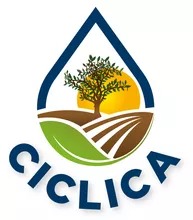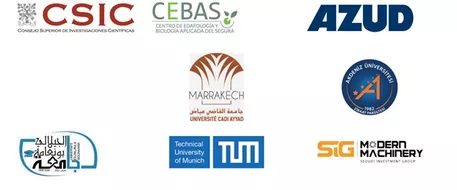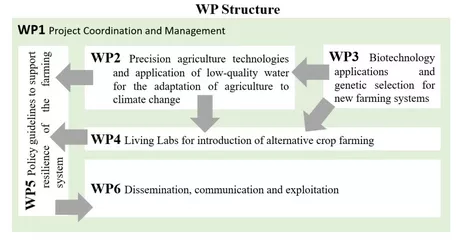
CICLICA: Smart agriCulture optimIzation to CLImate Change Adaptation
Climate change has adverse effects on food security and contributes globally to desertification and soil degradation. In light of the projected population growth estimated to reach 10 billion people by 2050, coupled with the reduction of land and water for agriculture, the significant challenge of the future will be to meet the global food demand. Despite increasing water scarcity and deterioration of its quality, irrigated agriculture plays a fundamental role in meeting current and future food production needs.
The environmental issues in the Mediterranean regions are of great significance due to the continuous growth of tourism and the concentration of economic activities along the coast. Meanwhile, rural areas suffer from population decline and the abandonment of productive agricultural activities. The COVID-19 pandemic offers Mediterranean countries the opportunity to reconsider their social and economic policies, aiming to strengthen trade integration while reducing dependence on oil. Furthermore, efforts must be made to create jobs, promote inclusive economic growth, and ensure stability.
The project's goal is to promote alternative Mediterranean agricultural systems based on agroecological principles to address the growing pressure from the destruction of natural resources and climate change.
These objectives are achieved through the application of advanced agricultural practices in three main areas:
water-saving strategies, including the use of low-quality water and non-conventional water for irrigation, organic mulching, and the use of precision irrigation technology;
biotechnological techniques (management of water quantity and quality during irrigation with superabsorbent polymers); and
utilization of genetic regulation of water tolerance to introduce new alternative plants, enhance new ecosystem services, improve soil health, and reduce the ecological footprint.An environmental life cycle assessment (LCA) of each Living Lab (alternative plants vs. traditional agriculture) is conducted and developed within the project by the TUM Chair of Wood Science.
This provides decision-support information and policy guidelines to manage and enhance the resilience of the investigated cultivation systems.
More information, you find on the project homepage: https://www.ciclica-prima.org/
Duration: 8/2022- 7/2025
People:
Lead WP 5, Working in all WPs
Chair of Wood Science: Omar Hijazi
Publications:
Omar Hijazi, Pamela Andrea Pedrero Díaz Abarca, Francisco Pedrero Salcedo, Teresa Munuera Munuera Pérez, Hamide Gubbuk, Faissal Aziz, Prof., Mona Maze, Amina Richa, Sami Touil, Christoph Bader (2023): Life cycle assessment of Smart agriculture as a method for optimization to climate change adaption, 2023 ASABE Annual International Meeting 2300106.(doi:10.13031/aim.202300106)
CICLICA Consortium
The coordinator is the Spanish National Research Council, (Spain)
Sistema Azud, S. A. ,Water Management, (Spain)
Technical University of Munich, Germany (Research Group Resource Flow Management)
Akdeniz University (Turkey),
Cadi Ayyad University (Morocco),
Djilali Bounaama University of Khemis Miliana (Algeria).

Granted by
Financial support has been provided by PRIMA, a program supported by the European Union. Project ID 1727

